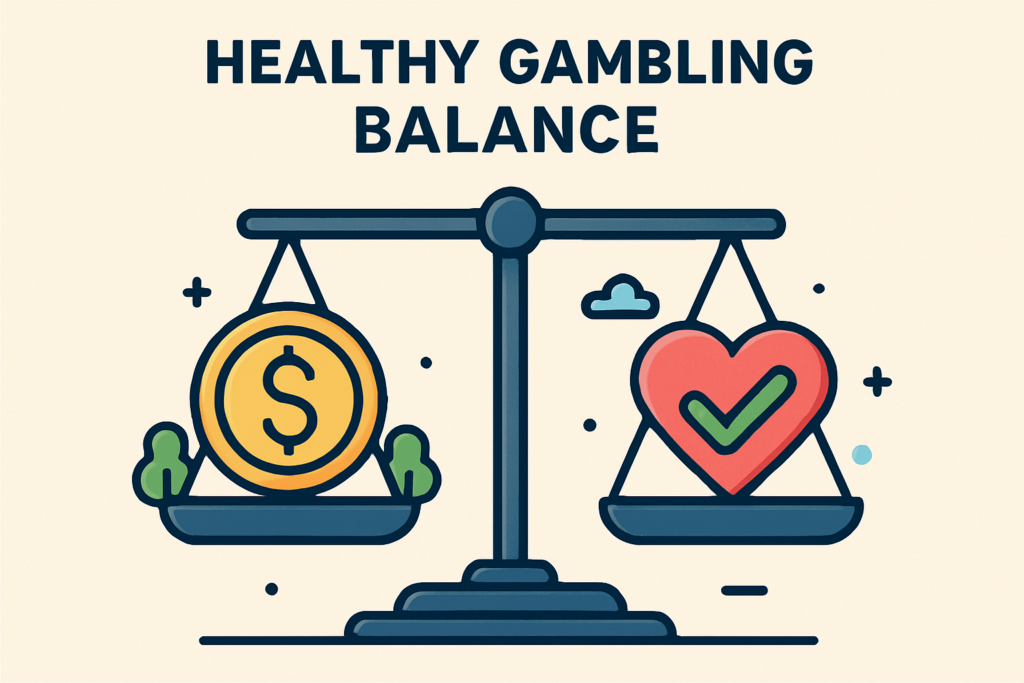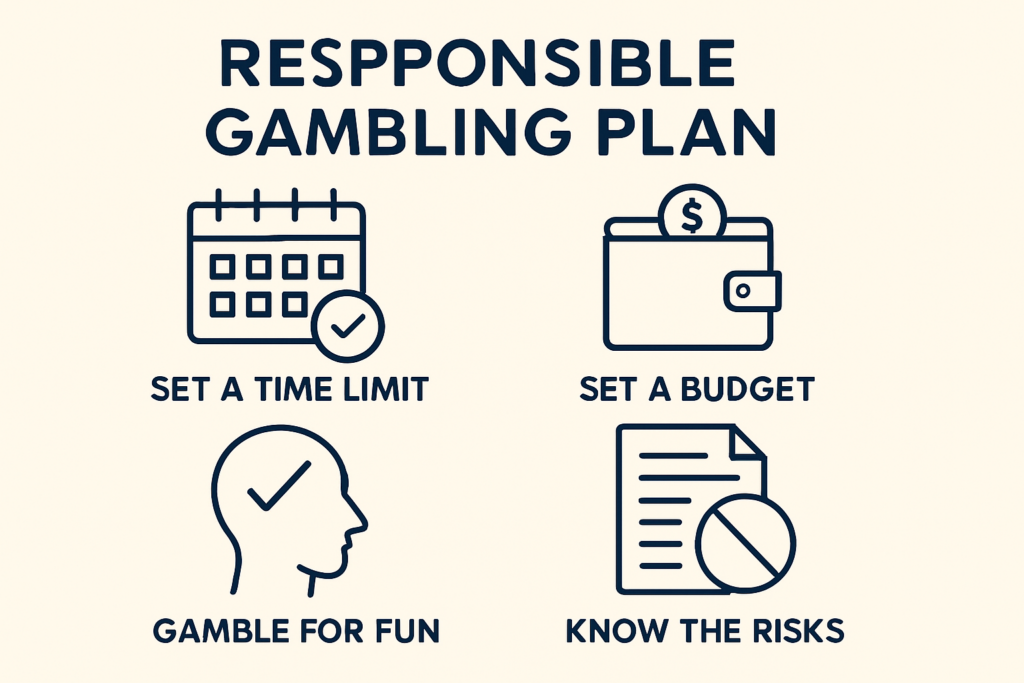Gambling Mental Health Impact: Why This Topic Can’t Be Ignored
- Gambling: more popular than ever, but it’s not all fun and games.
- Briefly mention the rise of gaming and its psychological side effects.
- Set the tone: direct, neutral, and empathetic about the mental wellness stakes.
Gambling Mental Health Impact: Why This Topic Can’t Be Ignored
Let’s cut to the chase: gambling is everywhere. Slick apps, endless odds, digital slot machines—what was once a backroom affair is now just a swipe away. For millions, it’s entertainment. For some, it’s a slippery slope. Sure, there’s the adrenaline rush of a win, but we can’t gloss over the flipside: the real, often silent, emotional costs.
This isn’t just about the money leaving your wallet. The mental health effects can linger far longer than a losing streak. As gaming explodes in popularity, so do cases of anxiety, stress, and even depression linked to compulsive betting. The stats back it up, but you don’t need numbers to know it hurts. This conversation isn’t about shame—it’s about honesty. If we ignore the mental wellness stakes of gambling, we lose sight of the actual game being played: your well-being. So, let’s talk about what’s really on the table.
Breaking Down the Psychological Effects
Let’s strip away the glitz: the psychological effects of gambling hit harder and deeper than most expect. Whether you’re chasing a win or battling a loss, your brain is along for a wild ride. The highs are real—adrenaline, excitement, even brief flashes of euphoria as you press your luck. For a short while, it’s an emotional jackpot.
But there’s another side. When luck runs out (and it always does), stress and anxiety sneak in. The worry isn’t just about money—it’s about regret, shame, and the nagging feeling that you can’t stop. These lows aren’t dramatic meltdowns most of the time; often, it’s quiet restlessness, cloudy moods, or a sense of unease that lingers long after the game is over.
Maybe you tell yourself, “just one more bet.” Feels harmless. But that simple phrase is heavy: it keeps you in the loop, intensifying feelings of tension and guilt as the stakes climb. Over time, the psychological effects pile up—mood swings, sleepless nights, stressed relationships, even a disconnect from daily life. That’s no small toll, and it doesn’t just disappear with a lucky hand.
Understanding these ups and downs is the first step. Acknowledge them, no sugarcoating—because the mind, just like your wallet, has limits.
The Cognitive Impact of Gaming
Let’s call it what it is: gambling rewires how you think. When you’re caught up in a cycle of play, your thoughts can start looping around odds, losses, and the next “big chance.” This obsessive focus easily slides into what experts call cognitive distortion—believing you can “win back” losses, or that you’re due for a lucky break just because you’ve lost a few in a row.
There’s also decision fatigue. Every wager, every spin ends up asking your brain to weigh options and outcomes, over and over. This wear and tear doesn’t look dramatic from the outside, but it adds up—especially for people juggling work, family, and friends. Your mental energy gets sucked into a black hole of maybes and what-ifs, leaving you drained for the stuff that really matters.
Then there’s the thrill-seeking part. The cognitive impact of gaming often nudges people—sometimes slowly, sometimes like a wrecking ball—toward riskier and riskier bets. The more you play, the more wired you become to chase bigger highs and ignore bigger losses. Before you know it, what started as a little distraction morphs into a reflex that’s as much about thinking patterns as it is about winning or losing.
Bottom line: Gambling isn’t just about money spent or won—it’s about how your brain gets trained to see risk, reward, and decision-making itself. Recognizing these subtle shifts is the first step to getting back in control.
Introduction
Winning a life-changing lottery jackpot is every player’s dream, but few are prepared for what comes next. The sudden influx of wealth can bring excitement, but also a wave of challenges.
The Financial Reality of Winning
Quick Decisions and Long-Term Implications
Many winners face critical financial decisions almost immediately:
- Taxes and Legal Issues: A large chunk of the winnings often goes to taxes, and failing to plan can lead to legal troubles.
- Investing vs. Spending: Some winners hire financial advisors to ensure long-term security, while others spend impulsively without a plan.
- Budgeting for the Future: Without proper money management, even the biggest jackpots can disappear quickly.
Temptations and Pitfalls
The sudden fortune invites both opportunities and risks:
- Reckless Spending: The temptation to indulge can lead to premature depletion of winnings.
- Financial Security: With intelligent planning, winners can secure not just their future but potentially that of future generations.
A Lifestyle Overhaul
Luxuries and Lifestyle Changes
A sudden fortune changes life in more ways than one:
- Luxury Purchases: Mansions, sports cars, and extravagant vacations become instantly affordable.
- Social Pressure: Long-lost friends and distant relatives often reappear, expecting a share of the winnings.
- Privacy Challenges: Some winners struggle with unwanted media attention and public scrutiny.
Choosing Discretion
While some winners embrace their new wealth openly, others choose to live discreetly to avoid pressure and expectations.
Giving Back and Creating a Legacy
Philanthropy and Community Impact
For some, wealth is not just about personal luxury—it’s an opportunity to make a difference. Many winners choose to:
- Donate to Charities and Community Projects: Supporting various causes through substantial contributions.
- Fund Scholarships or Support Education Initiatives: Investment in the future of education for underprivileged youth.
- Invest in Businesses: Creating jobs and opportunities for others.
From Players to Philanthropists
Some lottery winners prove that wealth can be used to leave a lasting impact. However, not all stories end positively—many who fail to manage their winnings properly find themselves bankrupt within years.
Conclusion
The way winners handle their newfound riches determines not just their own future, but also the legacy they leave behind. Whether they choose opulence, discretion, or philanthropy, the path they take post-win often defines their story.
Proactive Steps for Mental Health
Taking charge of your mental wellness in gambling isn’t rocket science, but it does take intention. It starts with limits. Set a time cap or a budget before you play—don’t wait until you’re in the zone. Take regular breaks, even when you feel “on a streak.” Simple? Yes. But they build a buffer between you and impulsive decisions.
If you realize things are stacking up emotionally, talk to someone you trust. You don’t need to have hit rock bottom before reaching out. Most online platforms now offer responsible gaming tools—use them. Self-exclusion options, spending limits, and real-time trackers can make a difference.
Still not sure where to start? Creating a responsible gambling action plan lays out concrete steps. Bottom line: Awareness and small actions add up. Don’t shoulder the weight alone—tools and people are there to help steady you.
What Happens After Winning Millions?
Winning a life-changing lottery jackpot is every player’s dream, but few are prepared for the reality that ensues. The sudden influx of wealth brings not just excitement, but also a cascade of challenges.
Financial Realities
After a jackpot win, many face overwhelming financial decisions:
- Managing Taxes: A significant portion of the winnings often goes to taxes, creating potential pitfalls if not properly managed.
- Investing Wisely: While some winners hire financial advisors to secure their future, others struggle with reckless spending.
- Long-term Planning: Without prudent money management, the dream of endless riches can quickly transform into a financial nightmare.
Lifestyle Changes
Winning a fortune can drastically alter one’s lifestyle:
- Luxury Purchases: Mansions, exotic cars, and extravagant vacations become part of the new reality.
- Social Pressures: Friends and distant relatives often emerge, seeking a share of the winnings, leading to tension and tough decisions.
- Living Discreetly: Some winners opt for a low-profile life to avoid unwanted attention and maintain privacy.
Philanthropy and Legacy
Beyond personal enjoyment, some winners channel their wealth into societal contributions:
- Charitable Endeavors: Many winners donate to charities or engage in community projects, funding scholarships or launching nonprofits.
- Business Investments: Investing in enterprises that create jobs and enhance community life.
- Lasting Impact: The choices winners make with their newfound wealth shape not only their own futures but also the legacies they leave behind.
Conclusion
Whether embracing luxury or opting for discretion, the transition to life after a jackpot win is never as simple as it seems. Each winner’s approach to handling their fortune dictates their future and the potential positive effects they can make in the world.
Digging Deeper: Additional Reading
If you’re curious about the bigger picture or want to understand more about how gambling interacts with mental health, check out this resource: Impact on mental health – Psychology Today. It dives into the science, the personal stories, and lots of what we’ve touched on here. Remember, no two mental health journeys are the same—your experience is real, and it matters. Don’t hesitate to dig for the info you need or talk to someone who gets it. It’s a process, not a sprint.
Wrapping Up
Let’s not kid ourselves: gambling leaves a real mark on mental health, and it’s often a quiet one. There’s no shame in being honest about it—checking ourselves, having straight-up conversations, and keeping balance at the center. Whether it’s taking a step back, asking for support, or tweaking your habits, making any move toward mental wellness takes guts. If nothing else, remember that looking after your mind matters—more than the game, more than the rush.

 George Dreyer brought valuable knowledge and creativity to the development of Jackpot Rush Empire, playing a key role in shaping the platform’s vision alongside its founder. With his keen eye for detail and dedication to quality, he helped ensure that the site delivers engaging lottery insights and meaningful content for its audience. His contributions were essential in building a platform that not only informs players about results and jackpots but also emphasizes responsible gaming and safe participation, aligning closely with the mission of Jackpot Rush Empire.
George Dreyer brought valuable knowledge and creativity to the development of Jackpot Rush Empire, playing a key role in shaping the platform’s vision alongside its founder. With his keen eye for detail and dedication to quality, he helped ensure that the site delivers engaging lottery insights and meaningful content for its audience. His contributions were essential in building a platform that not only informs players about results and jackpots but also emphasizes responsible gaming and safe participation, aligning closely with the mission of Jackpot Rush Empire.
